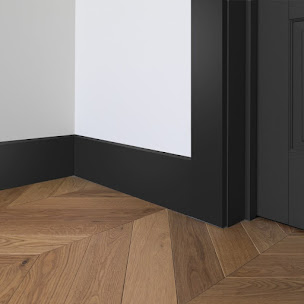Eco-Friendly Grating Options
Grating is a versatile and durable component that helps to ensure productivity, dependability, and security in a variety of corporate situations. Grating is an important solution for a wide range of both primary and secondary safety demands, and its applications are constantly evolving. Fiberglass plastic grating is infinitely adaptable. It has use in water treatment plants as well as the petrochemical industry. The material's adaptability is evident in platforms, walkways, as well as architectural ideas.
One area where this goal can be met is the use of ecologically friendly substances and methods in infrastructure building and maintenance. One such material is fiberglass-strengthened plastic (FRP) grating, which provides various advantages over typical steel grating.
In the modern building sector, sustainability is more important than ever. Builders as well as architects are constantly looking for materials that combine endurance with environmental benefits. Molded fiberglass grates are one of these materials, recognized for their strength, durability, and eco-friendliness.
Molded fiberglass grating has a significant environmental benefit due to its outstanding durability. Unlike traditional materials like wood or metal, fiberglass grates do not corrode or decay, which considerably increases its lifespan. This resilience eliminates the need for regular replacements, reducing waste and lowering environmental effects over time.
Environmental Sustainability
Plastic has good environmental properties. Plastics use only 4% of the world's oil reserves and require significantly less energy to manufacture than other materials. Because plastics are both durable and lightweight, they minimize weight in pipelines, automobiles, and airplanes. Plastics can be reused after their useful existence whether they were used for creating a car the bumper and a bottle or, if reusing is not feasible or beneficial to the environment, their calorie content is recoverable by using the energy saved from waste incineration to generate a significant amount of renewable energy.
Versatility and Reduced Waste
Steel Anti Slip Grating is exceptionally flexible. Customizable to exact proportions, it reduces waste from off-cuts while assuring material efficiency. Its versatility extends from industrial floor to drainage systems, eliminating the need for multiple materials.
Its aesthetic versatility is also impressive. Modern technology provides for a wide range of finishes and designs that fulfill both functional and aesthetic requirements. As a result, in addition to accomplishing its primary function, it beautifies environments by eliminating unnecessary decorative materials and reducing waste.
Corrosion Resistance
Fiberglass grating, unlike metal grating, is corrosion-resistant by design. It is unlikely to rust or deteriorate, even in very corrosive conditions. This property makes it ideal for use in chemical plants, treatment of wastewater facilities, and platforms located offshore.
Non-toxic and Non-corrosive Properties
Fiberglass is harmless and non-corrosive, which makes it an environmentally friendly choice. Traditional materials, such as metal, can corrode and emit toxic elements, while wood can be treated using chemicals that can leak into soil and water. Molded fiberglass grating avoids these concerns and provides a cleaner, safer option.
Energy Efficiency in Production
Fiberglass is harmless and non-corrosive, which makes it an environmentally friendly choice. Traditional materials, such as metal, can corrode and emit toxic elements, while wood can be treated using chemicals that can leak into soil and water. Molded Plastic Grating avoids these concerns and provides a cleaner, safer option.




Comments
Post a Comment